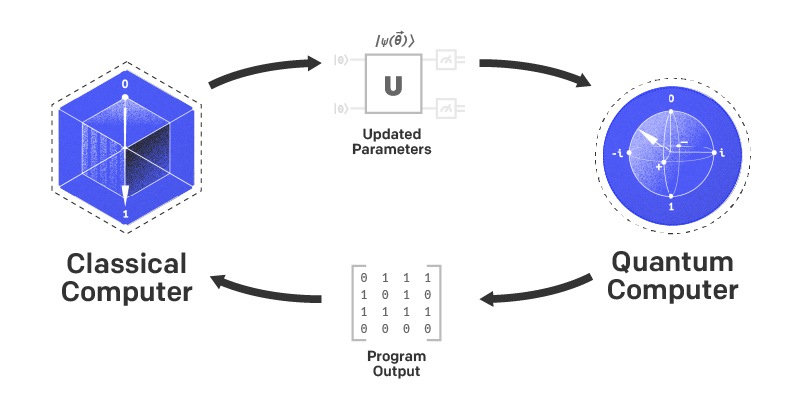Quantum Computing
What is Quantum Computing?
Definition:
Quantum Computing represents a revolutionary approach to computation that leverages the principles of quantum mechanics. Unlike classical computers, which use bits as the basic unit of information, quantum computers use quantum bits or qubits. Qubits, thanks to the principles of superposition and entanglement, can exist in multiple states simultaneously, allowing quantum computers to perform complex computations at an unprecedented speed.
Analogy:
Imagine classical computing as a library with traditional books, where you can read one page at a time. Quantum computing is like a magical library where you can read all the pages of all the books simultaneously, exploring a vast amount of information in parallel.
Further Description:
Quantum computing holds the potential to transform various fields, including cryptography, optimization problems, and drug discovery. Some key aspects of quantum computing include:
Superposition: Qubits can exist in multiple states at the same time, enabling quantum computers to process a vast amount of information simultaneously.
Entanglement: Qubits can be entangled, meaning the state of one qubit is directly connected to the state of another, even if they are physically separated. This allows for correlated and synchronized quantum operations.
Quantum Gates: Similar to classical logic gates, quantum gates manipulate qubits to perform quantum operations. Quantum algorithms utilize these gates to solve problems that are practically impossible for classical computers.
Why is Quantum Computing Important?
Exponential Speedup: Quantum computers have the potential to solve certain problems exponentially faster than classical computers. This includes tasks like factoring large numbers, optimizing complex systems, and simulating quantum physics.
Secure Cryptography: Quantum computers could break widelyused cryptographic techniques, driving the need for quantumresistant cryptographic algorithms to secure sensitive information.
Innovations in Science and Medicine: Quantum computing can accelerate drug discovery, optimization of complex systems, and simulation of molecular interactions, leading to breakthroughs in science and medicine.
Machine Learning and Artificial Intelligence: Quantum computing has the potential to enhance machine learning algorithms, enabling more efficient processing of large datasets.
Examples and Usage:
IBM Q System One: IBM’s quantum computer is accessible through the cloud, allowing researchers and developers to experiment with quantum algorithms and explore the potential of quantum computing.
Google’s Quantum Supremacy: In 2019, Google claimed to achieve quantum supremacy, demonstrating that their quantum computer, Sycamore, could perform a specific calculation faster than the most advanced classical supercomputers.
Quantum Machine Learning: Researchers are exploring the intersection of quantum computing and machine learning, aiming to develop algorithms that can outperform classical machine learning approaches.
Challenges and Future Prospects:
Error Correction: Quantum computers are highly sensitive to environmental disturbances, requiring advanced error correction techniques to maintain the integrity of quantum computations.
Scaling Quantum Systems: Building larger and more stable quantum computers remains a significant challenge, but ongoing research and advancements are pushing the boundaries of quantum computing capabilities.
Interdisciplinary Collaboration: The realization of the full potential of quantum computing requires collaboration between physicists, computer scientists, and engineers to address both theoretical and practical challenges.
Key Takeaways:
- Quantum computing harnesses the principles of quantum mechanics to revolutionize computation.
- Quantum bits (qubits) enable superposition and entanglement, allowing for parallel processing and synchronized operations.
- Quantum computing has the potential to exponentially speed up certain calculations, impacting cryptography, optimization, and scientific research.
- Examples include IBM Q System One, Google’s Sycamore, and ongoing research in quantum machine learning.
- Challenges include error correction, scaling quantum systems, and the need for interdisciplinary collaboration.
Table of Contents





